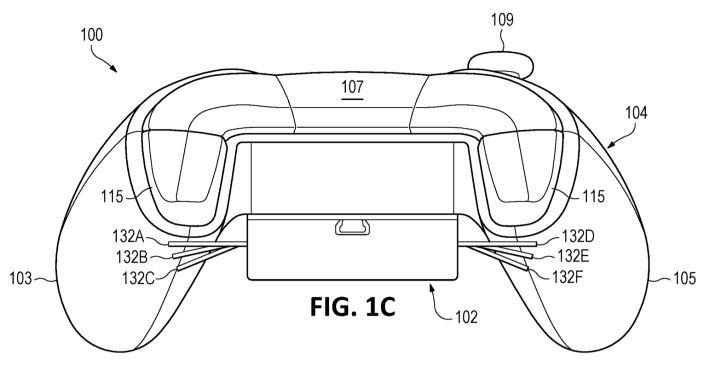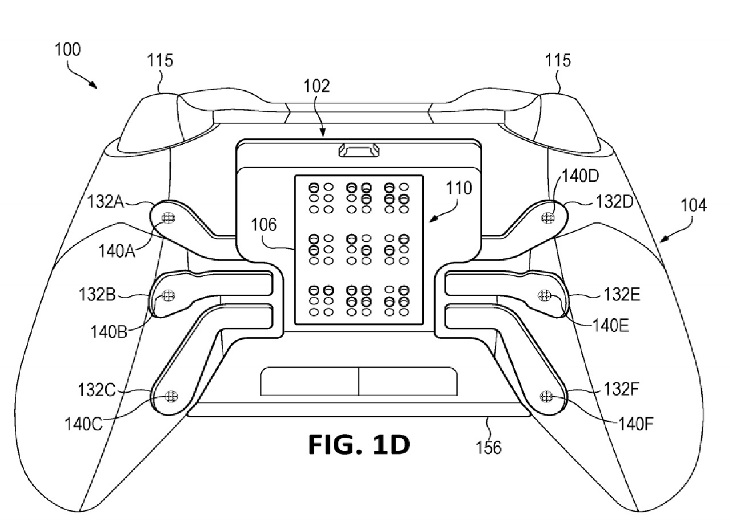Microsoft has another patent pending and this particular one could further advance the company’s focus on accessibility in the gaming industry. This particular patent involves a major change to the standard Xbox controller, adding a Braille display for vision-impaired gamers and paddles for Braille input.
Often, many elements of gaming can be taken for granted when one doesn’t consider the experiences of individuals with disabilities. As reported by German tech site Let’s Go Digital, Microsoft’s controller patent creates an opportunity for on-screen text and UI assets to be better explained to visually impaired gamers.
The report shares that the present solution for gamers who can’t read the text in games are audio descriptions, but a built-in Braille display would allow someone to take in and process the data while remaining immersed in the game.

The Microsoft patent describes an Xbox controller with haptic Braille chording capability. There are paddles on the rear of the controller that can be rearranged and used to specifically engage Braille characters for various reasons. One may initiate in-game text chat, for instance. There’s potential for the paddles to give touch feedback as well.
The patent goes on to describe what type of issues Microsoft aims to address. It references the evolution of games from text-heavy adventures to experiences dependent on complex graphics.
“Games employing these complex graphics are challenging to use for visually impaired or blind users since the accompanied audible feedback may only describe the game’s complex graphics in a limited manner through the use of screen readers,” the patent reads.

“In addition, when a game is moving quickly, such as in a fighting game, the output from a screen reader may lag gameplay … a need remains for improved game controllers and accessories that address the very specialized manner in which visually impaired or blind users interact with video games.”
Microsoft’s Xbox Adaptive Controller has been received well due to the collaboration with organizations dedicated to gamers with disabilities and how the device can be shaped to fit the needs of many for different types of games. This Xbox controller patent reflects similar modularity, though not to the heights of the Adaptive Controller, but this is merely an idea at this time. There’s still time for the company to flesh out the concept with additional output before potentially moving forward with manufacturing.





